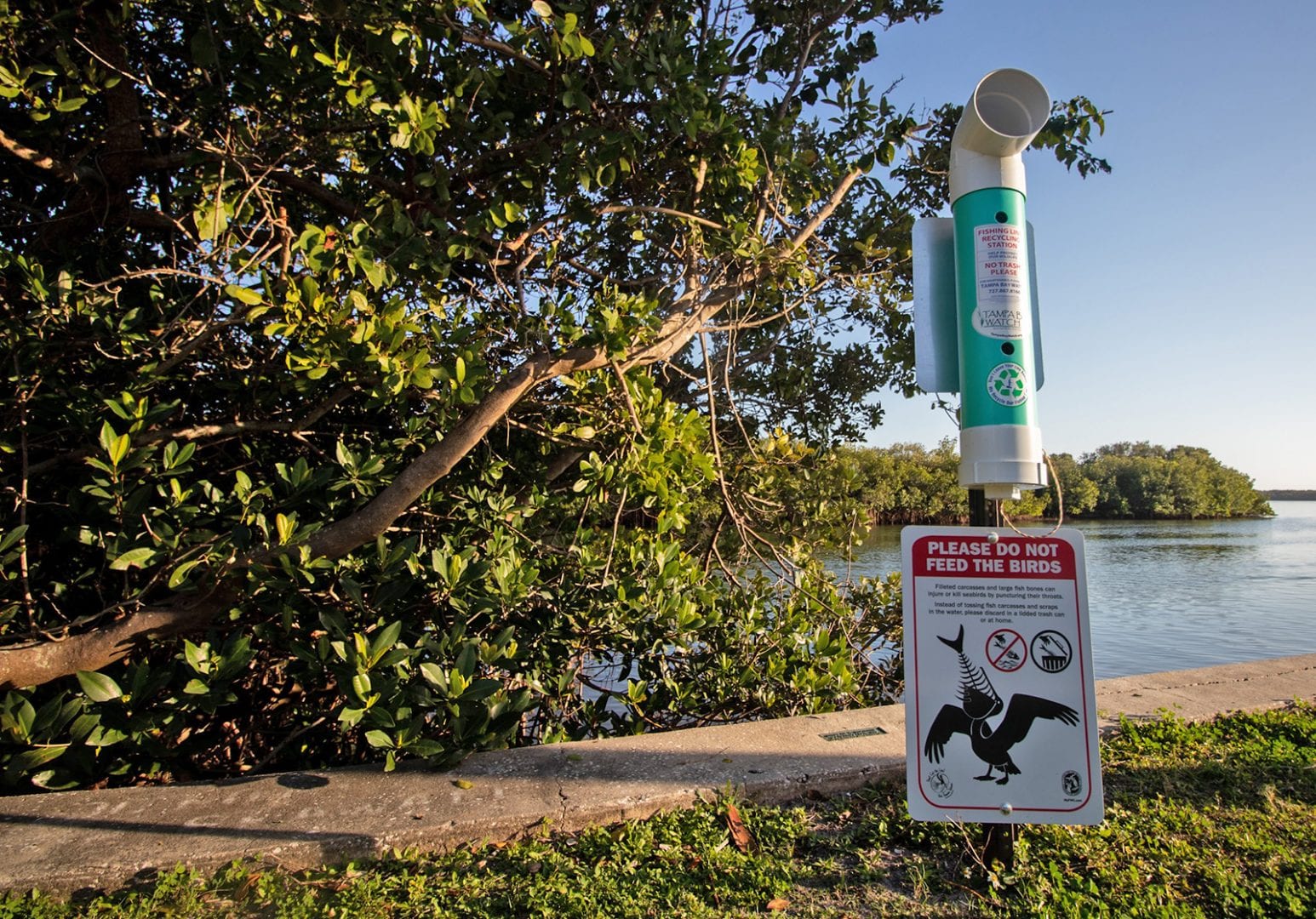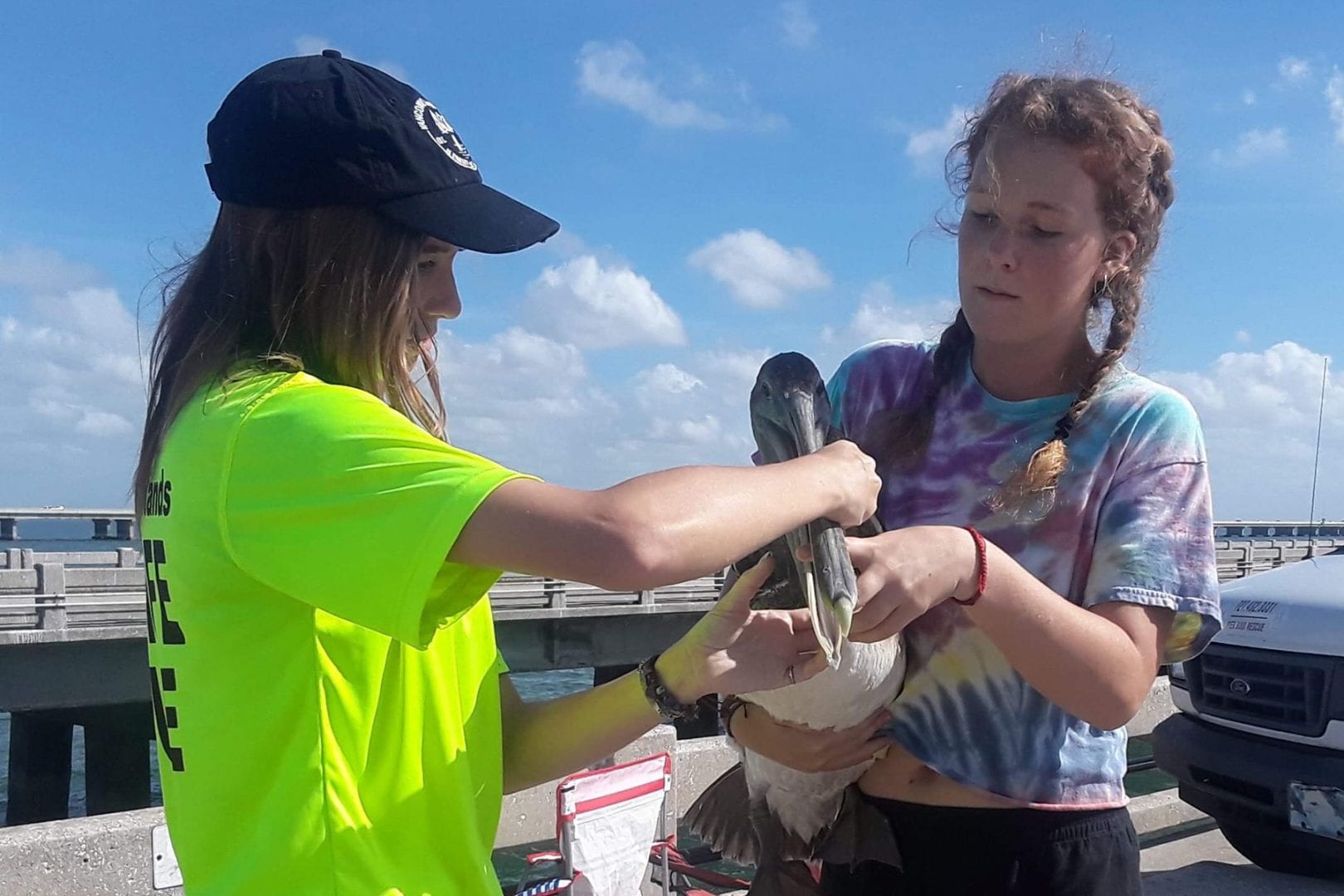
Four monotube receptacles for used fishing lines and hooks have been installed on campus.
Eckerd College’s Save Our Seabirds Club President Fairl Thomas is no stranger to dramatic rescues.
The senior environmental studies and animal studies student from Safety Harbor, Florida, has leapt from the campus seawall to save a choking bird, freed tangled animals from debris and fishing lines, and performed other heroics to ensure the survival of our avian neighbors.
Thanks to a new series of monotubes and signs on campus, courtesy of Tampa Bay Watch and the Florida Fish and Wildlife Commission (FWC), Fairl hopes there will be less need for drama in the future. On January 11, four monotube receptacles for used fishing lines and hooks were installed by Tampa Bay Watch at Eckerd’s Waterfront Dock No. 1, the seawall near Omega Complex, the pier near the Galbraith Marine Science Laboratory building, and behind Lewis House.
“There are monotubes at beaches and piers all over the state,” Fairl said. “The waste gets recycled into tackle boxes for fishing, so it’s a real full-circle project.”
Fairl said the tubes have been a great success at preventing the dangerous phenomenon of seabird entanglement that often maims and kills the animals. Last year, she completed an Audubon Society of America–funded study on brown pelican entanglement.
“The birds will be walking near the fishing areas and get a piece of fishing line wrapped around their feet or legs and eventually end up entangled,” Fairl explained. Birds can die when they are unable to extract themselves from objects the fishing line gets caught on, including mangroves and other plants near the water.
The monotube project had been on the radar of the Office of Sustainability for a while but came to fruition only after Sustainability Intern Angelina Kossoff resumed talks with Tampa Bay Watch last semester. Fairl said her club aided the installation by documenting the most popular fishing spots, according to students, to find the right places for the PVC monotubes. Four student workers will receive Reflective Service-Learning credits for removing the contents of the monotubes monthly, documenting the amount, detangling and separating the fishing lines and hooks, and recycling them. Environmental Studies and Biology Professor Beth Forys is the project’s faculty supervisor.
Signage from FWC that accompanies the tubes encourages anglers to properly discard lines and hooks, what to do if you accidentally hook a bird, and to refrain from feeding seabirds fishing scraps.
“You shouldn’t feed birds scraps because they could choke on them and also it teaches them the behavior of begging, which can also be very dangerous,” Fairl said.
With more than 100 members, Fairl said she hopes the Save Our Seabirds club can continue the work of monitoring the monotubes and helping campus fisherpeople when they accidentally hook birds long after she graduates.













